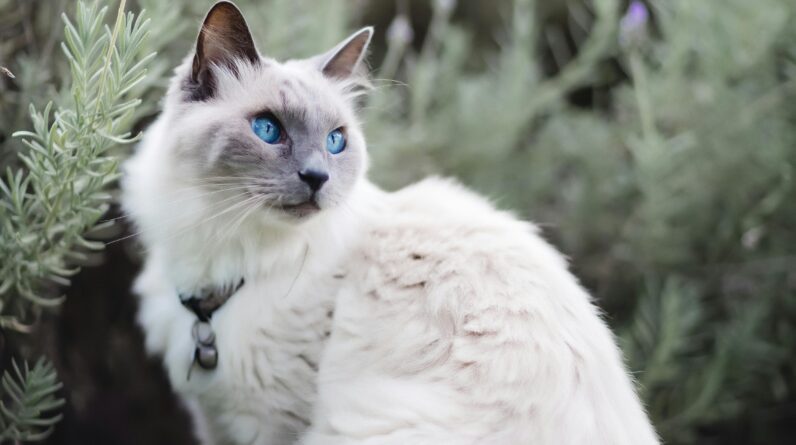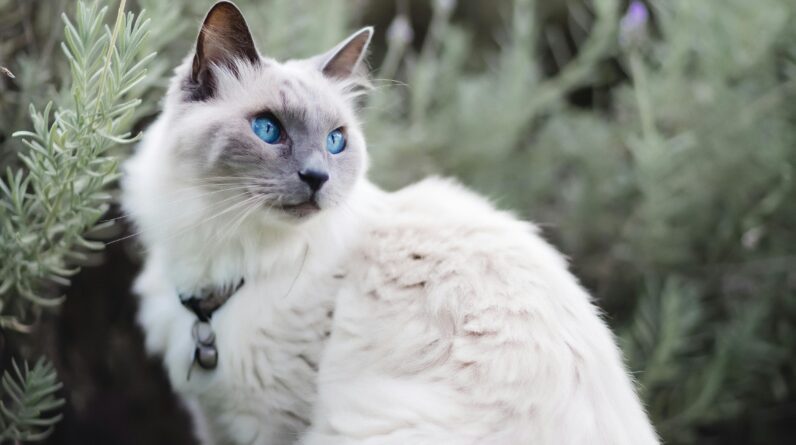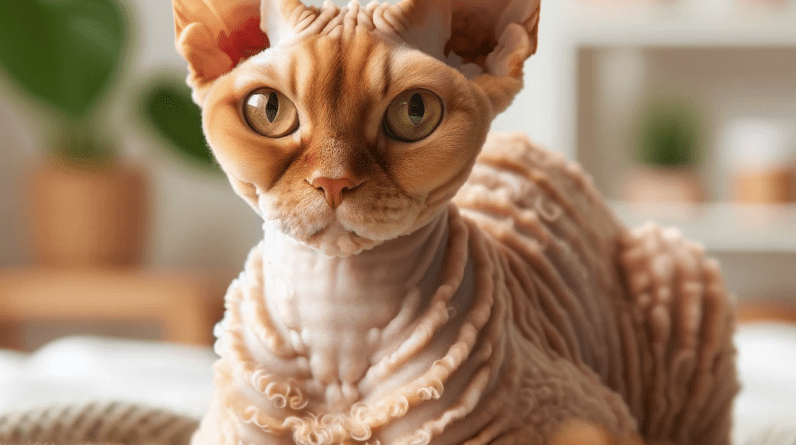
Unveiling Hypoallergenic Ginger Cat Breeds: Perfect Companions for Allergy Sufferers
Are you an allergy sufferer who dreams of having a ginger cat?
You’re not alone.
Many cat lovers face the challenge of allergies.
But here’s the good news: certain ginger cat breeds are more hypoallergenic than others.
This article will explore these breeds, offering hope and options to those with allergies.
Key Takeaways:
- Hypoallergenic Ginger Cats Exist: Certain breeds like the Oriental Shorthair and Balinese offer options for allergy sufferers.
- Allergy Management is Crucial: Regular grooming, air purifiers, and home cleaning significantly reduce allergens.
- No 100% Allergen-Free Cats: While hypoallergenic, these cats still produce some allergens. Personal exposure and reactions may vary.
What Makes a Cat Hypoallergenic?
Understanding Hypoallergenic Cats
First, it’s important to address a common myth.
It’s often thought that some cats are completely hypoallergenic.
In truth, no cat breed is 100% free from allergens.
All cats produce some allergens, but the levels can vary.
The Allergen: Fel d 1
The main cause of cat allergies is a protein known as Fel d 1.
This protein is not just in cat fur.
It’s found in their saliva, skin, and even their dander (tiny flakes of skin).
When cats groom themselves, they spread Fel d 1 all over their fur.
When this fur sheds, the allergens spread around your home.
Why Some Cats are Better for Allergies
Some cats produce less Fel d 1.
Because of this, they are often called hypoallergenic.
Remember, ‘hypoallergenic’ doesn’t mean allergen-free.
It means fewer allergens.
People with mild to moderate allergies might find these cats more tolerable.
Benefits of Hypoallergenic Cats
If you have allergies, a hypoallergenic cat might be a better choice.
Since these cats produce less Fel d 1, they often trigger fewer allergic reactions.
This can mean less sneezing, itching, and discomfort for allergy sufferers.
It’s a way to enjoy the company of a cat with fewer allergy symptoms.
When considering a cat, remember that hypoallergenic breeds might help.
But, each person’s allergies are different.
Spending time with a cat before adopting is a good way to test your reaction.
This approach can help you find a feline friend that’s right for you and your allergies.
Ginger Cat Breeds and Allergies
Ginger cats are famous for their bright orange fur.
They’re loved all over the world.
Even though their fur color doesn’t affect allergies, some ginger cat breeds are better for people with allergies.
Oriental Shorthair
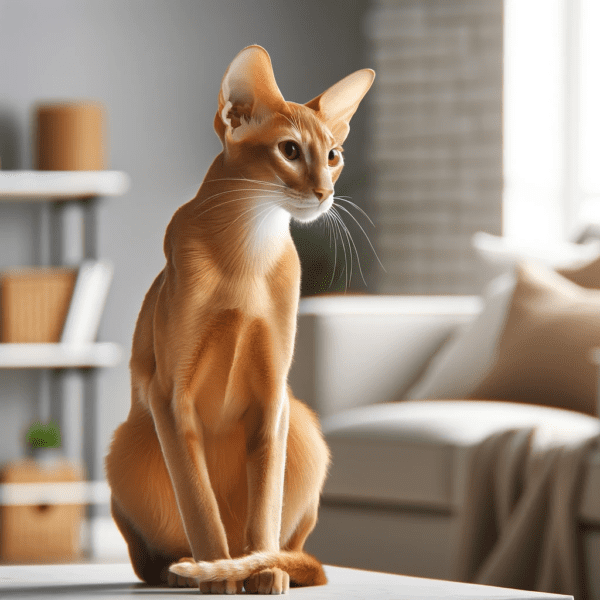

The Oriental Shorthair is sleek and elegant.
They can have beautiful ginger fur.
This breed makes less Fel d 1, the allergen in cats.
Keeping them groomed and your home clean helps reduce allergens.
Balinese
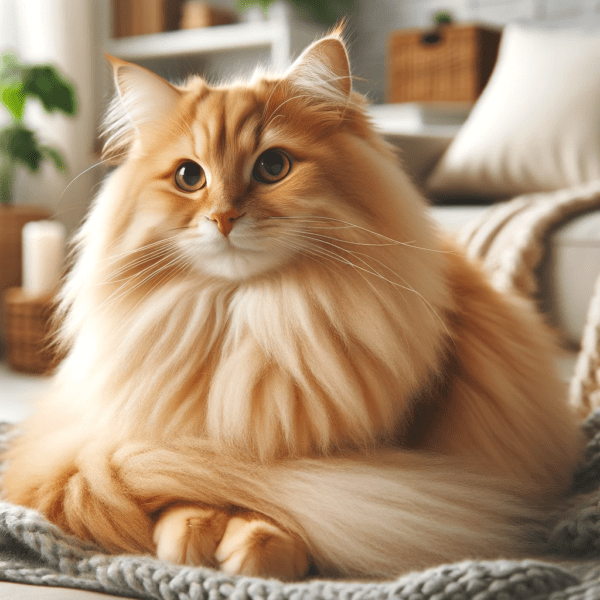

The Balinese cat looks similar to a Siamese but has long ginger fur.
Despite their long fur, they don’t make many allergens.
They are playful and loving, making great pets.
Their personality and low allergen levels are perfect for families.
Devon Rex


The Devon Rex stands out with less fur and a distinct look.
They can have ginger fur too.
These cats shed very little.
They need only a bit of grooming.
This is great for people with allergies.
Siberian
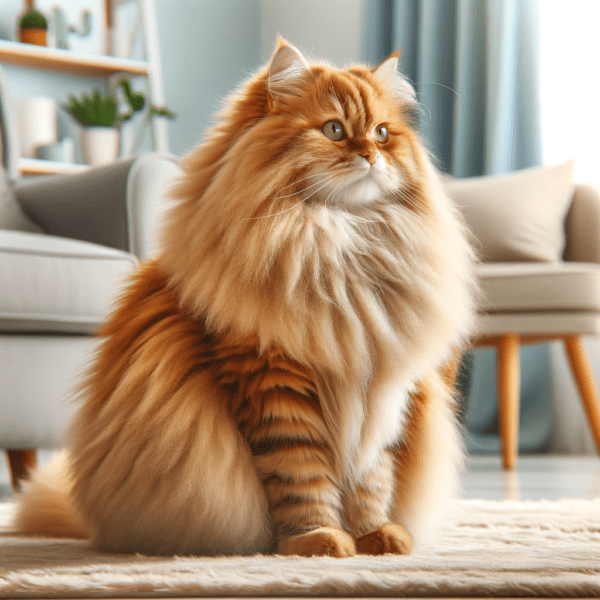

Siberians are fluffy with a thick, long coat.
They have ginger fur and lower Fel d 1 levels.
Some people with allergies do well with this breed.
They’re a good choice if you want a big, fluffy ginger cat.
Living with Cats When You Have Allergies
Choosing a hypoallergenic cat is a great step.
But, it doesn’t mean you’ll never have allergy symptoms.
Here’s how to keep allergies at bay:
Regular Cat Baths
Bathing your cat often can lower the amount of dander.
Dander is tiny flakes of skin that can cause allergies.
A gentle, cat-friendly shampoo is best.
Regular baths mean less dander and fewer sneezes.
Use an Air Purifier
Air purifiers help clean the air in your home.
They capture allergens like pet dander and fur.
Place the purifier in rooms where you and your cat hang out.
Cleaner air can make a big difference for your allergies.
Frequent Cleaning
Clean your home often, especially where your cat likes to be.
Vacuum carpets and furniture to remove fur and dander.
Dusting regularly also helps.
A clean home means fewer allergens in the air.
Allergen-Reducing Pet Wipes
Pet wipes are made to reduce allergens on your cat’s fur.
Wipe your cat gently with these special wipes.
They’re a quick way to cut down on allergens.
Using them between baths can help keep allergies in check.
Having allergies doesn’t mean you must give up on having a ginger cat.
Breeds like the Oriental Shorthair, Balinese, Devon Rex, and Siberian offer options for allergy sufferers.
Remember, individual reactions to different cats can vary, so spending time with a breed before adopting is wise.
Embrace the possibility of having a feline friend that suits your lifestyle and health needs.
FAQs:
Q1: Are ginger cats naturally hypoallergenic?
A1: No, ginger cats are not naturally hypoallergenic.
The hypoallergenic quality depends on the breed, not the fur color.
However, some ginger cat breeds produce fewer allergens.
Q2: Which ginger cat breeds are best for allergy sufferers?
A2: Breeds like the Oriental Shorthair, Balinese, Devon Rex, and Siberian, which can have ginger fur, are known to be more hypoallergenic.
They produce fewer allergy-causing proteins.
Q3: Can bathing my cat really help with allergies?
A3: Yes, regular bathing can help reduce the amount of dander, which is a common allergen.
Use a gentle, cat-friendly shampoo and bathe your cat as recommended by a veterinarian.
Q4: How effective are air purifiers in reducing cat allergies?
A4: Air purifiers can be very effective.
They help remove allergens like dander and fur from the air.
It’s best to use a purifier with a HEPA filter for maximum effectiveness.
Q5: Are hypoallergenic cats completely free of allergens?
A5: No, hypoallergenic cats are not completely free of allergens.
They produce fewer allergens compared to other breeds, which can reduce allergic reactions but might not eliminate them entirely.
Q6: Can I develop less sensitivity to my cat’s allergens over time?
A6: Some people may develop a tolerance to their cat’s allergens over time, but this is not guaranteed.
It’s important to continue managing allergens in your home.
Q7: Do hypoallergenic cat wipes work?
A7: Yes, hypoallergenic cat wipes can help reduce the amount of allergens on your cat’s fur.
They’re a convenient option for managing allergens, especially between baths.
Q8: Will keeping my home clean reduce my allergy symptoms?
A8: Absolutely. Regular cleaning, including vacuuming and dusting, can significantly reduce allergens in your home and help alleviate allergy symptoms.




